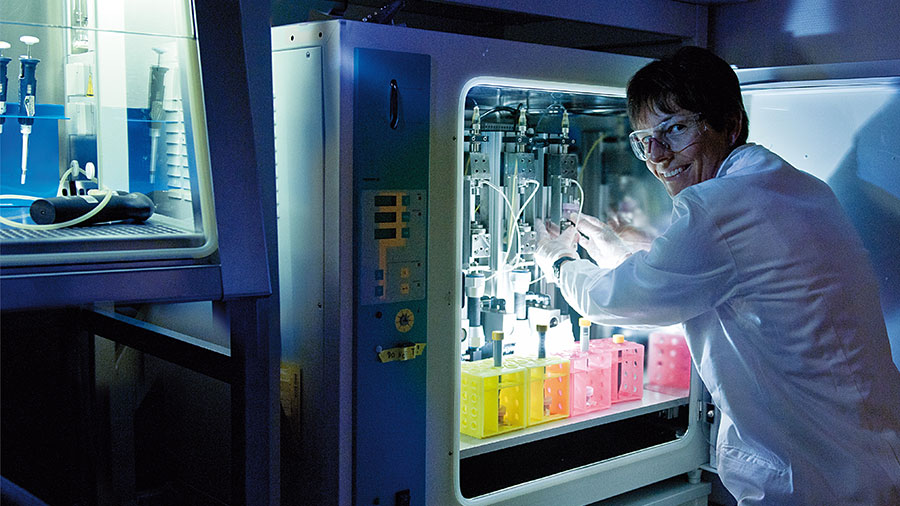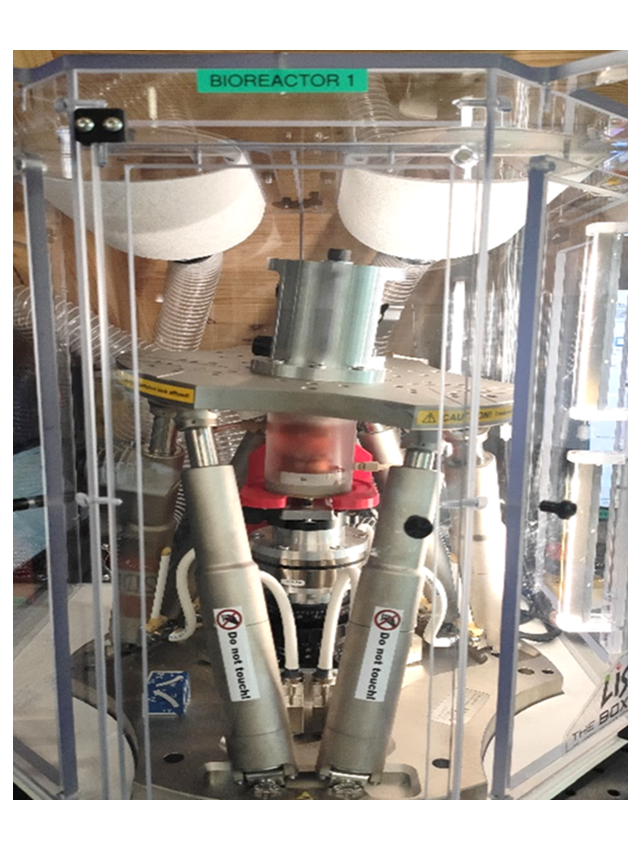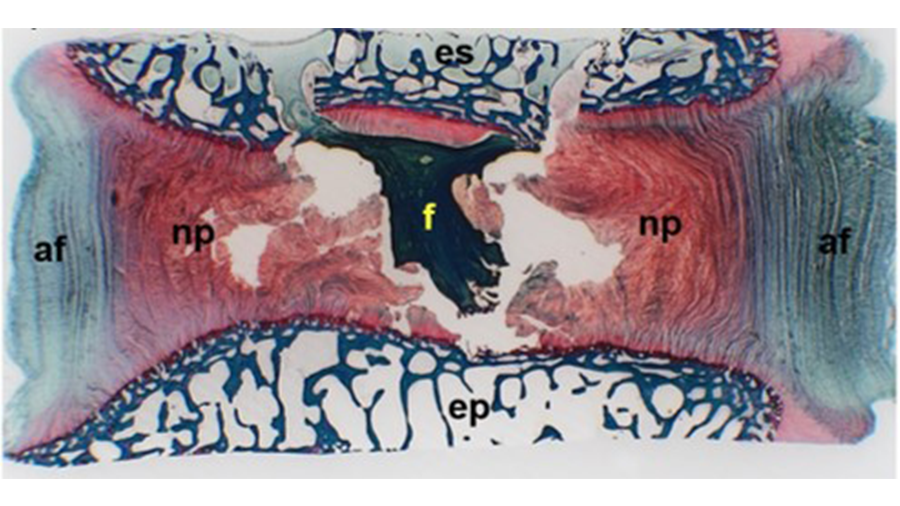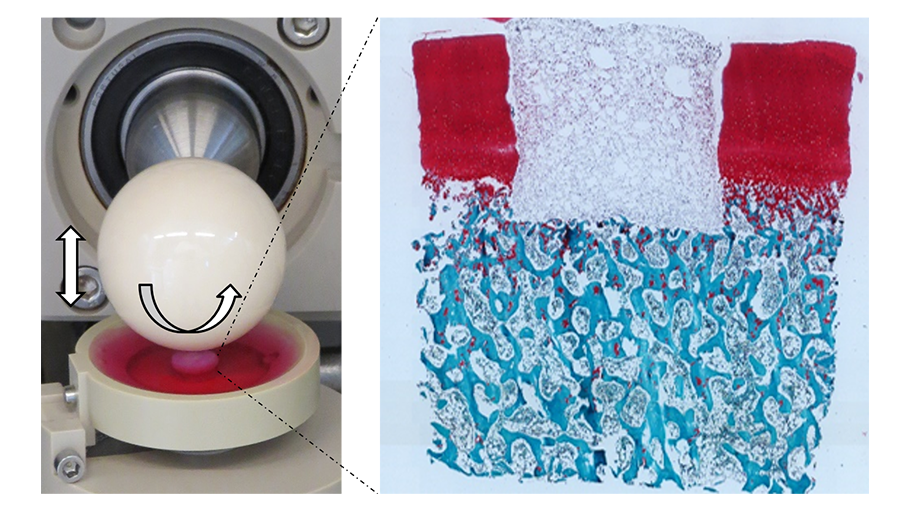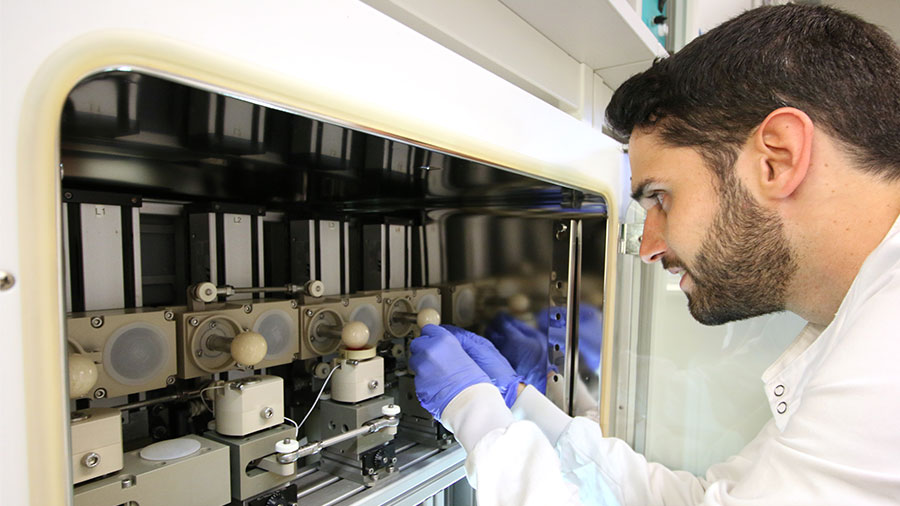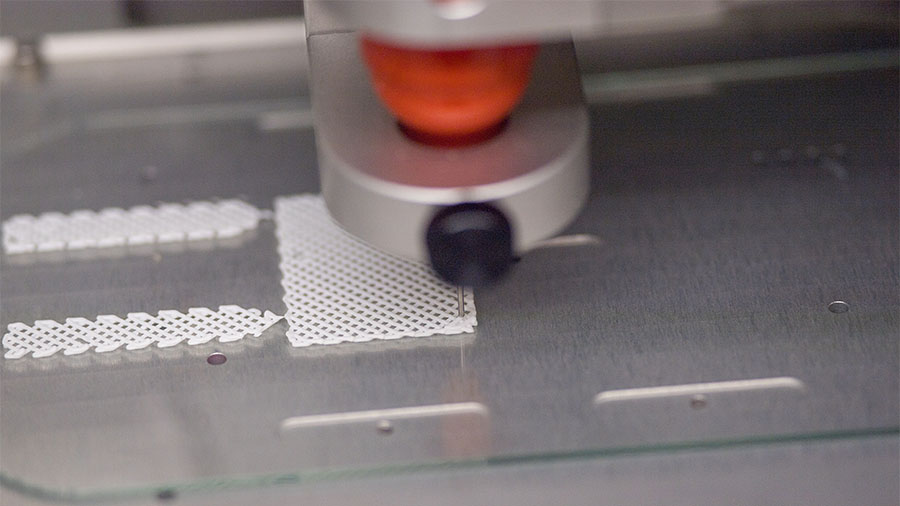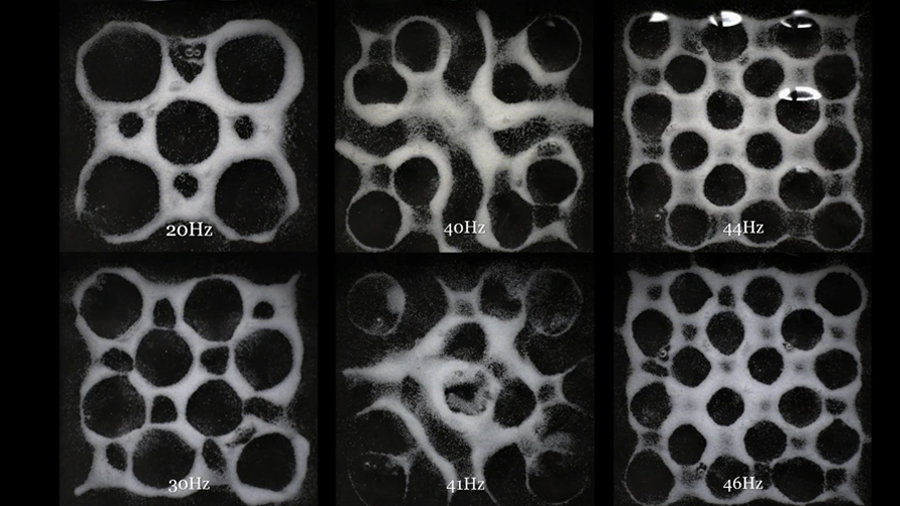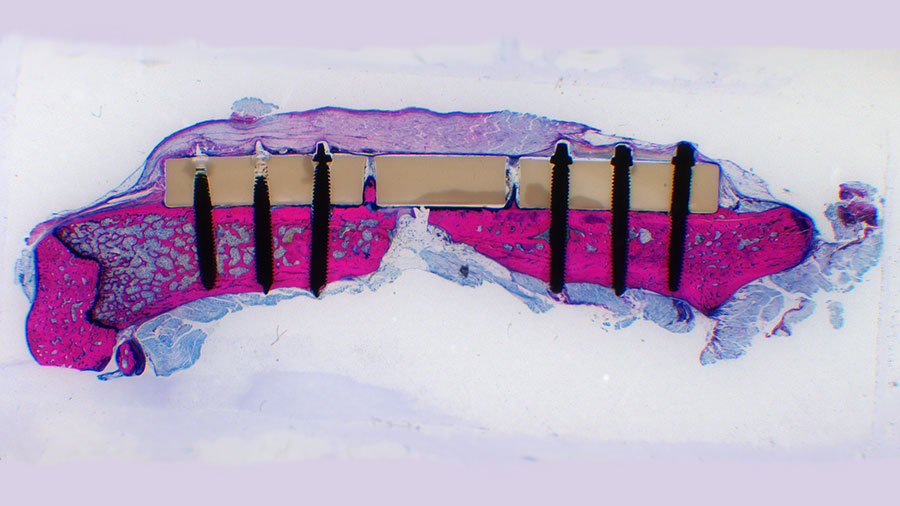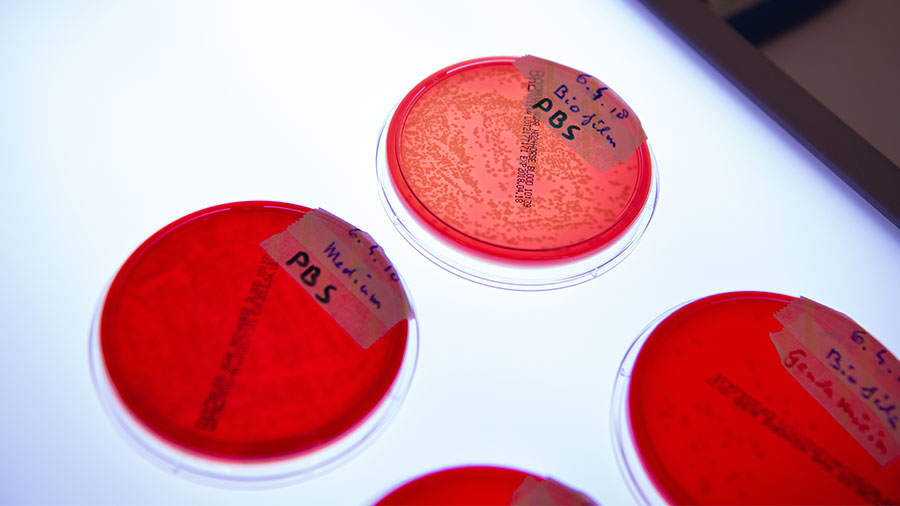Disc and Cartilage Biology
Developing and testing of repair methods, regenerative treatments and diagnostic tools

Traumatic and degenerative damage to the articular joint and intervertebral disc (IVD) are major causes of pain and functional impairment. However, the factors that contribute to the loss of function and the underlying pathophysiology are still poorly understood. In addition, current medical and surgical approaches barely address the underlying pathology and are often unsatisfactory. We investigate mechanical and molecular mechanisms leading to cartilage and IVD damage and identify tissue and systemic biomarkers, which may serve as diagnostic and therapeutic targets. Collaboration with clinical partners provides access to patients’ samples, data and clinical context.
We have established whole IVD organ culture systems with the ability to maintain entire discs for several weeks under controlled nutrient and mechanical loading conditions. Our unique multiaxial bioreactors enable us to apply load and motion in six degrees of freedom onto the spinal segment, reproducing physiological conditions.
Our ex-vivo IVD defect and degeneration models allow us to design and evaluate new biological treatment strategies, including the delivery of therapeutic cell populations, anabolic, anti-catabolic or anti-inflammatory molecules, biomaterials or combinations thereof. The goal is to develop functional therapies which will restore the mechanical properties of the disc, enhance endogenous regenerative processes, or inhibit paradox nerve or vessel growth and activation.
To study the potential of new therapies for articular cartilage repair, we have implemented joint-specific bioreactor systems applying multiaxial load to tissue-engineered constructs or osteochondral explants. Co-culture models, osteoarthritis-mimicking proinflammatory conditions and a physiological oxygen environment are employed to investigate disease mechanisms and test tailored treatments. Cell- and material-based therapies as well as chondrogenic and anti-inflammatory factors are under investigation for cartilage repair and preservation.
Selected projects
ECMCART - Cartilage Regeneration with Biomimetic Decellularized Extracellular Matrix Materials
The aim of this project is to reconstruct cartilage tissue with decellularized extracellular matrix (dECM) biomaterial for functional joint repair. The regeneration of cartilage tissue with dECM materials will be investigated in vitro and ex vivo.
Effect of complex loading on intervertebral disc biology and function
The intervertebral disc (IVD) and the endplates are subjected to complex mechanical loading patterns during daily activities. The different tissues of the IVD are highly responsive to variations in mechanical impacts, which may lead to local anabolic or catabolic reactions. The aim of this project is to investigate the effect of defined combinations of compression/tension, shear, bending or rotation on disc biology and function. This will improve our understanding of the range of physiological and detrimental loading in different stages of IVD health and degeneration.
Collaborative projects
EU HORIZON project
Sinpain - A game changer for the treatment of osteoarthritis: a cost effective combined advanced therapy to treat knee osteoarthritis
SINPAIN aims to develop a pipeline of siRNA-based therapy built on the combination of current technologies (dynamic intraarticular steroids, hyaluronic acid and nanocarriers) that will be designed step-by-step in order to reach a successful management of inflammation and innervation therapy for the treatment of early (grade 0-1) and later stages (grade 3-4) of knee osteoarthritis. Read more...
SNSF funded project
DiskedInj - Injectable spheroid-loaded microscaffolds for IVD repair
DiskedInj aims to tackle the issue of poor IVD regeneration through a novel strategy merging the advantage of both cell-based and scaffold-based options: the “third tissue engineering strategy”. The objective of DiskedInj is to fabricate cellularized units based on human bone marrow stromal cells combined with polymeric biodegradable microscaffolds, to be used as building blocks, with an optimal design in terms of size and architecture. The microscaffolds are tested in cutting-edge bioreactor loaded IVD organ degeneration models. Read more...
Immunospine
Post-operative surgical site infection (SSI) is known as one of the most frequent and serious complications after spine surgery. In collaboration with Schulthess Clinic Zürich, blood serum of patients with SSI is analysed with respect to cytokines and immune markers, while peripheral blood mononuclear cells are profiled in terms of immune cells and their sub-sets. The immune status of patients with SSI is correlated with clinical and microbiological data and compared with patients without SSI. The parameters, identified with a limited number of samples, may ultimately be analyzed at a larger scale to evaluate the patient's susceptibility.


